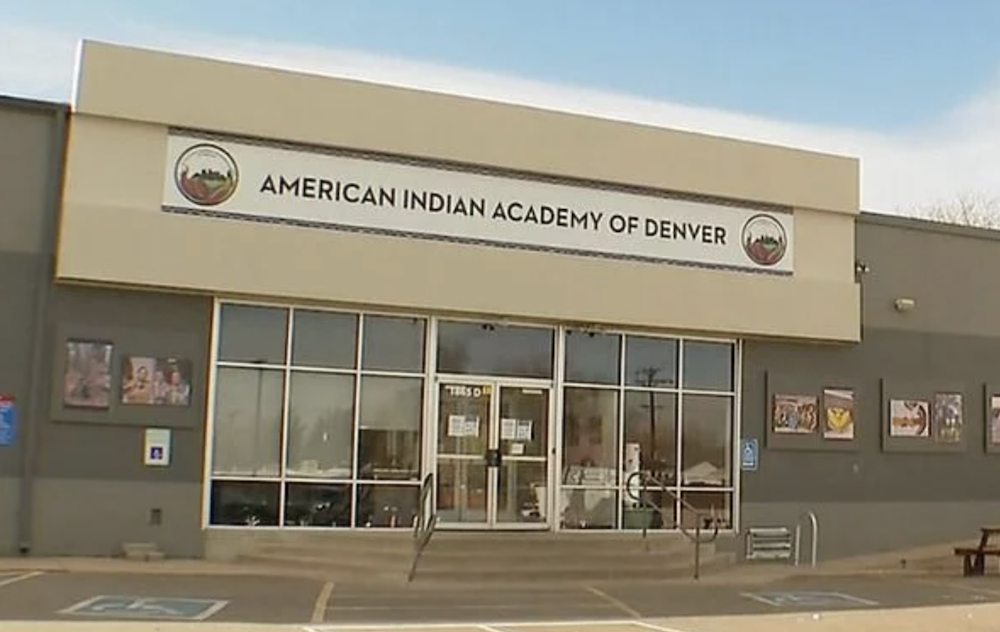
- Details
- By Jenna Kunze
A Denver charter school focused on Indigenized curriculum will be closing its doors at the end of a school year due to low enrollment.
The American Indian Academy of Denver (AIAD) began enrolling middle and high schoolers in fall 2020, teaching them a curriculum “specifically designed to address the unmet needs of American Indian and Latino students in the Denver metro area,” according to the school’s website.
But as their three-year contract renewal approached, the school’s board of directors voted to give up the charter contract with the district.
“It was obviously a pretty tough decision,” said Nicholas Martinez, co-chair of the AIAD Board of Directors. “It really boils down to the fact that we didn't have the enrollment to sustain the school.”
As of November 2022, AIAD had enrolled 134 students in grades six through 10. In its 2018 application the school had predicted an enrollment number of 400 students in sixth to twelfth grade. This year, Martinez said, the school should have been enrolling between 250 to 300 students.
The Board of Directors also listed “significantly lower than expected revenue; and significantly higher than expected costs,” as part of the “several challenges” leading to the school closure, according to the resolution.
In the school’s amended budget adopted Jan 30, 2023, the board had approved $3 million in expenditures.
Martinez said there were a number of factors working against them since opening the school, including the fact that they opened during the pandemic, and that a large portion of the school’s budget went to renovating a DMV facility to create their existing school building.
“Had there been an opportunity to be in an existing school, or share a campus, or occupy some sort of other building rather than renovating our own, we might have been able to do something different with budget,” Martinez told Native News Online. “But ultimately, it’s a numbers game. We just didn't have enough kids enrolling and ultimately that affected our ability to create a sustainable and solvent budget.”
Students came from more than 30 different zip codes to attend the charter school.
“Unfortunately, there is no school similar to what we're offering,” he said. “Most of our students will probably go back to their home districts back to whatever school they are zoned for based on their residence.”
More Stories Like This
Dr. Shelly C. Lowe to Be Inaugurated as IAIA President March 26–27Tlingit Language Courses Expand for Students to Learn With Families At-Home
American Education Has Failed Its First People, But Hope Is On The Horizon
Bipartisan Vote Keeps Institute of American Indian Arts Alive and Funded
New UNLV Executive Certificate Focuses on Tribal Governance, Economic Leadership
Help us defend tribal sovereignty.
At Native News Online, our mission is rooted in telling the stories that strengthen sovereignty and uplift Indigenous voices — not just at year’s end, but every single day.
Because of your generosity last year, we were able to keep our reporters on the ground in tribal communities, at national gatherings and in the halls of Congress — covering the issues that matter most to Indian Country: sovereignty, culture, education, health and economic opportunity.
That support sustained us through a tough year in 2025. Now, as we look to the year ahead, we need your help right now to ensure warrior journalism remains strong — reporting that defends tribal sovereignty, amplifies Native truth, and holds power accountable.
 The stakes couldn't be higher. Your support keeps Native voices heard, Native stories told and Native sovereignty defended.
The stakes couldn't be higher. Your support keeps Native voices heard, Native stories told and Native sovereignty defended.
Stand with Warrior Journalism today.
Levi Rickert (Potawatomi), Editor & Publisher

